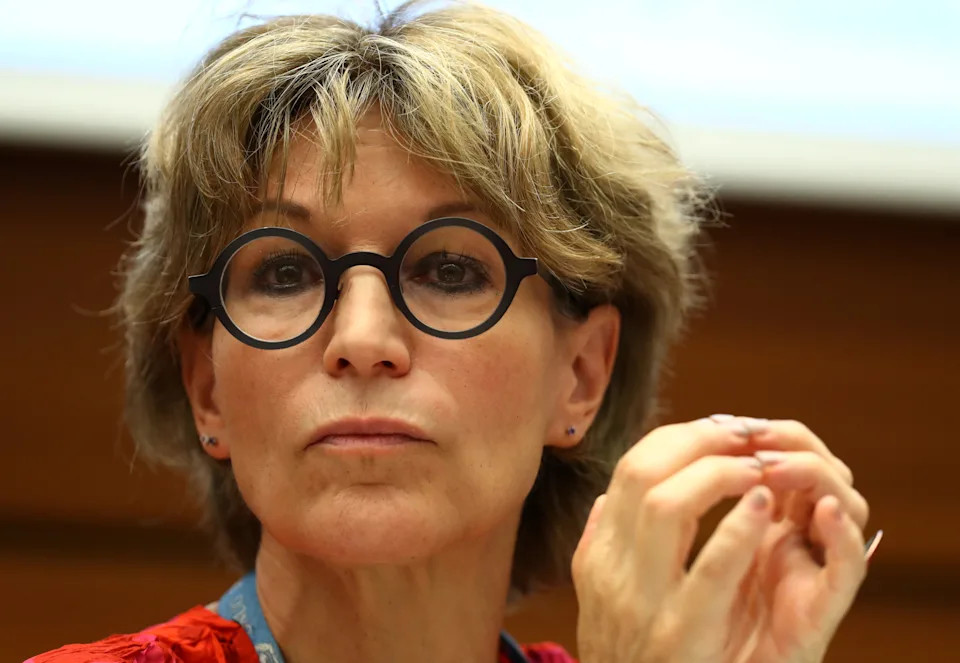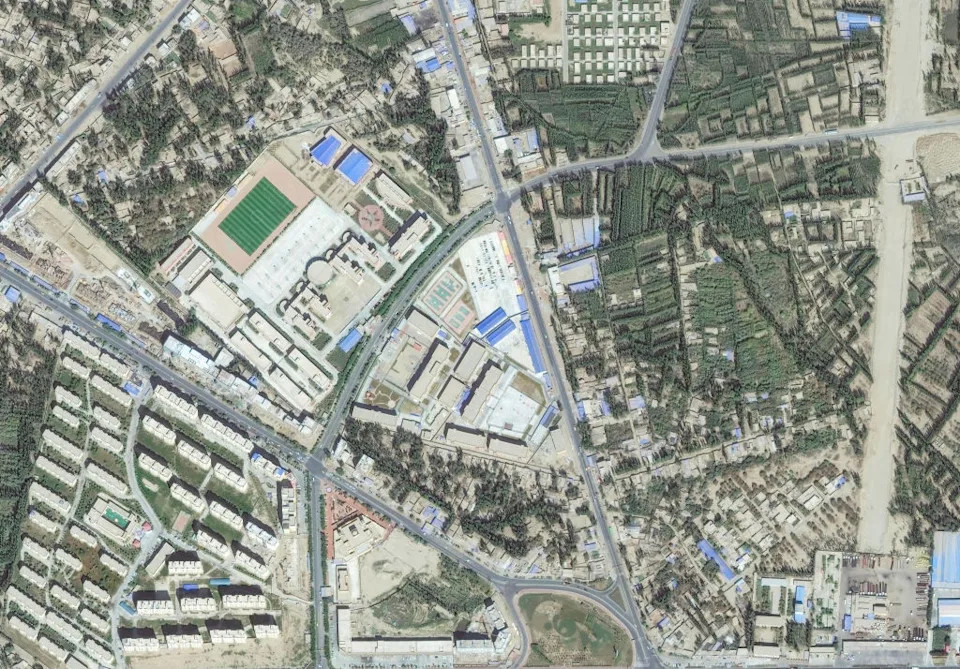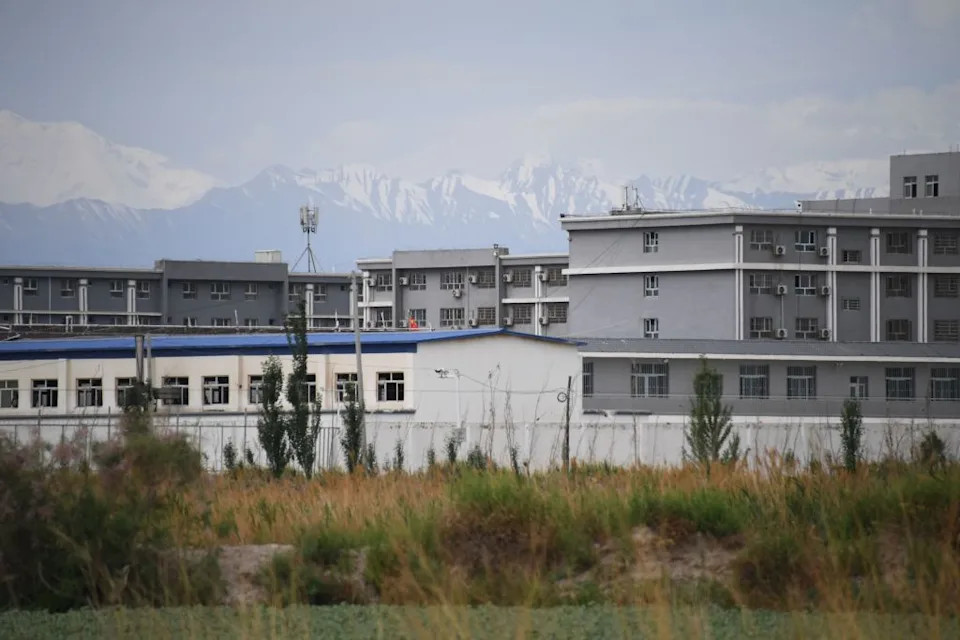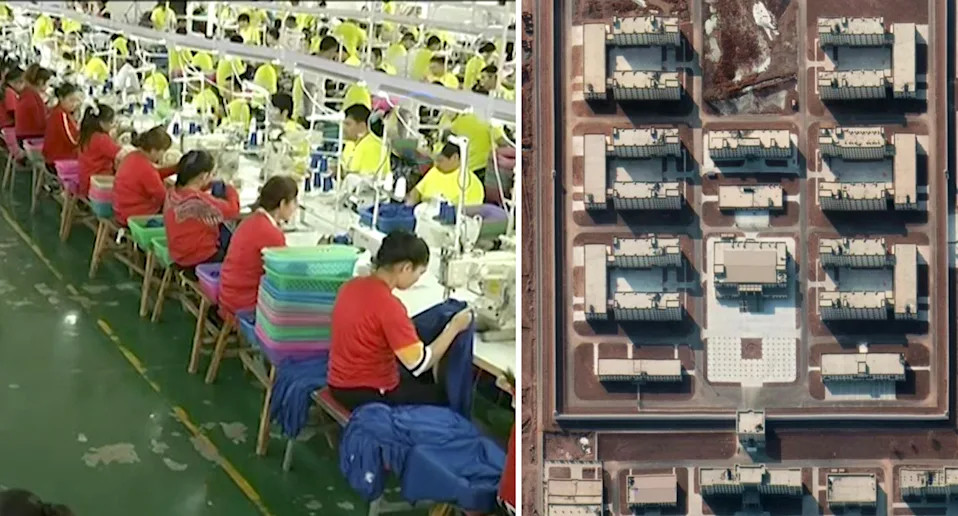Chilling drone footage reveals conditions Uyghurs endure in Xinjiang “concentration camps”.
China is facing revived accusations of human rights abuses in Xinjiang after Amnesty International accused the communist nation of creating a "dystopian hellscape".
More than one million Uyghur and Muslim minorities are believed to have been detained in internment camps in the region, set up by Chinese authorities to tackle extremism and re-educate millions in the far-western province.
But Beijing's move to detain Uyghurs en masse has been widely condemned by the West, with several nations including the US and UK accusing China of genocide.
See details on Wikipedia https://en.wikipedia.org/wiki/Xinjiang_internment_camps
But Beijing's move to detain Uyghurs en masse has been widely condemned by the West, with several nations including the US and UK accusing China of genocide.
See details on Wikipedia https://en.wikipedia.org/wiki/Xinjiang_internment_camps
Several high-profile reports and media investigations have uncovered allegations of forced labour, torture, sexual abuse, forced abortion and sterilisation – all claims Beijing vehemently denies.
The secretary general of the human rights organisation Amnesty International, Agnès Callamard, said China had created a "dystopian hellscape on a staggering scale" in Xinjiang.

Agnes Callamard has accused China of creating a "dystopian hellspace'" in Xinjiang. Source: Reuters
"It should shock the conscience of humanity that massive numbers of people have been subjected to brainwashing, torture and other degrading treatment in internment camps, while millions more live in fear amid a vast surveillance apparatus," she said.
Amnesty called on the United Nations to do more and investigate China's alleged crimes against humanity in a new report released on Thursday (local time).
Its 160-page report detailed interviews with 55 former detainees in the camps, stating China was guilty of "severe deprivation of physical liberty".
It comes just months after a similar report from the Newlines Institute for Strategy and Policy think tank in Washington DC that claimed China's policy in the province displayed "an intent to destroy the Uyghurs as a group, in whole or in part".

One of the internment camps in Hotan, Xinjiang. Source: Maxar via Getty

There are allegations of widespread physical and sexual abuse in the Chinese Uyghur camps. Source: Getty
China has repeatedly insisted its camps are largely voluntary and provide work for many who, prior to the camps' existence, faced poverty.
A surge in such camps began in 2017 as part of a re-radicalisation program for combating terrorism in the region following a series of terrorist attacks in the country linked to extremists.
China's foreign ministry previously stated Xinjiang has been "poisoned" by the Afghan Taliban.
Yet Amnesty said that was not an acceptable reason for mass detention of innocent civilians.
"[China has shown] clear intent to target parts of Xinjiang's population collectively on the basis of religion and ethnicity and to use severe violence and intimidation to root out Islamic religious beliefs and Turkic Muslim ethno-cultural practices," its report said.

China says the Uyghur camps offers a route out of povery for many in the province. Source: Reuters
Beijing attempts to paint positive picture of Xinjiang
Foreign Minister Wang Yi insists the province is prospering and has called on the West to see Xinjiang for itself instead of relying on what he believes as skewed media reporting.
Beijing has embarked on an extensive social media campaign to paint a positive picture of the region, with breathtaking photos of Xinjiang's expansive landscapes regularly shared online.
The Associated Press in May uncovered what is believed to be a text message from local authorities instructing Xinjiang natives to record positive video messages about their lifestyle in the province for widespread distribution.
While Australia has yet to treat China's actions in Xinjiang as genocide, Foreign Affairs Minister Marise Payne has repeatedly expressed the Morrison government's concern over reports of human rights abuses.

